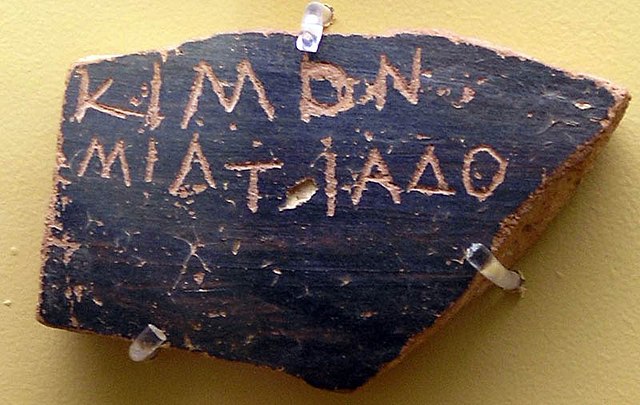The Septuagint, sometimes referred to as the Greek Old Testament or The Translation of the Seventy, and often abbreviated as LXX, is the earliest extant Greek translation of the Hebrew Bible from the original Hebrew. The full Greek title derives from the story recorded in the Letter of Aristeas to Philocrates that "the laws of the Jews" were translated into the Greek language at the request of Ptolemy II Philadelphus by seventy-two Hebrew translators—six from each of the Twelve Tribes of Israel.
Fragment of a Septuagint: A column of uncial book from 1 Esdras in the Codex Vaticanus c. 325–350 CE, the basis of Sir Lancelot Charles Lee Brenton's Greek edition and English translation
Beginning of the Letter of Aristeas to Philocrates (Biblioteca Apostolica Vaticana, 11th century)
Ancient Greek includes the forms of the Greek language used in ancient Greece and the ancient world from around 1500 BC to 300 BC. It is often roughly divided into the following periods: Mycenaean Greek, Dark Ages, the Archaic or Epic period, and the Classical period.
An inscription about the construction of the statue of Athena Parthenos in the Parthenon, 440/439 BC
Ostracon bearing the name of Cimon, Stoa of Attalos




